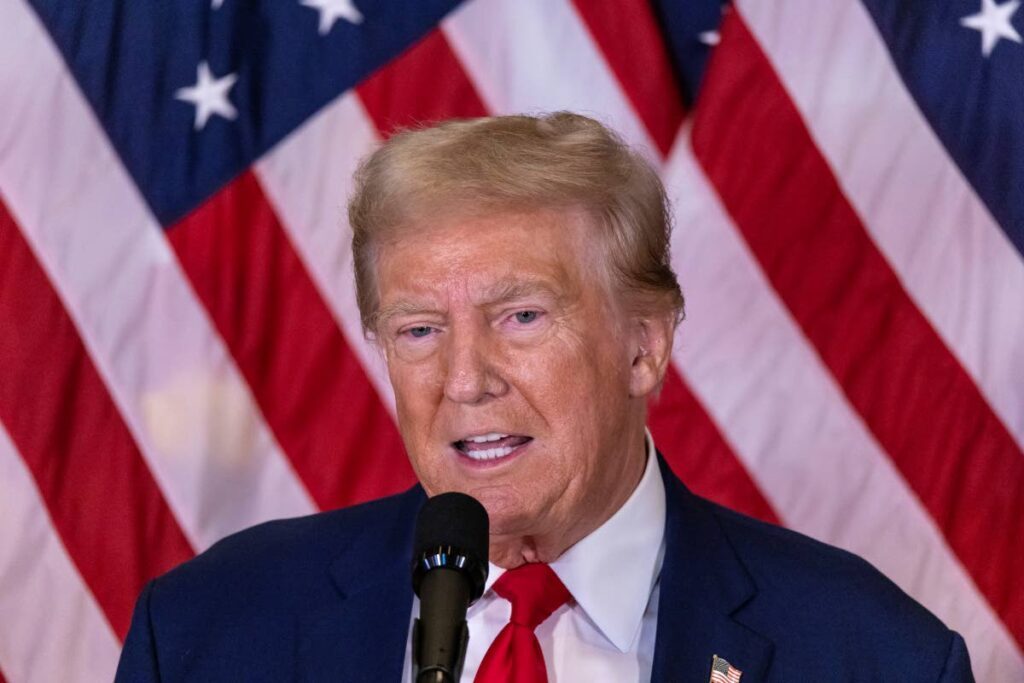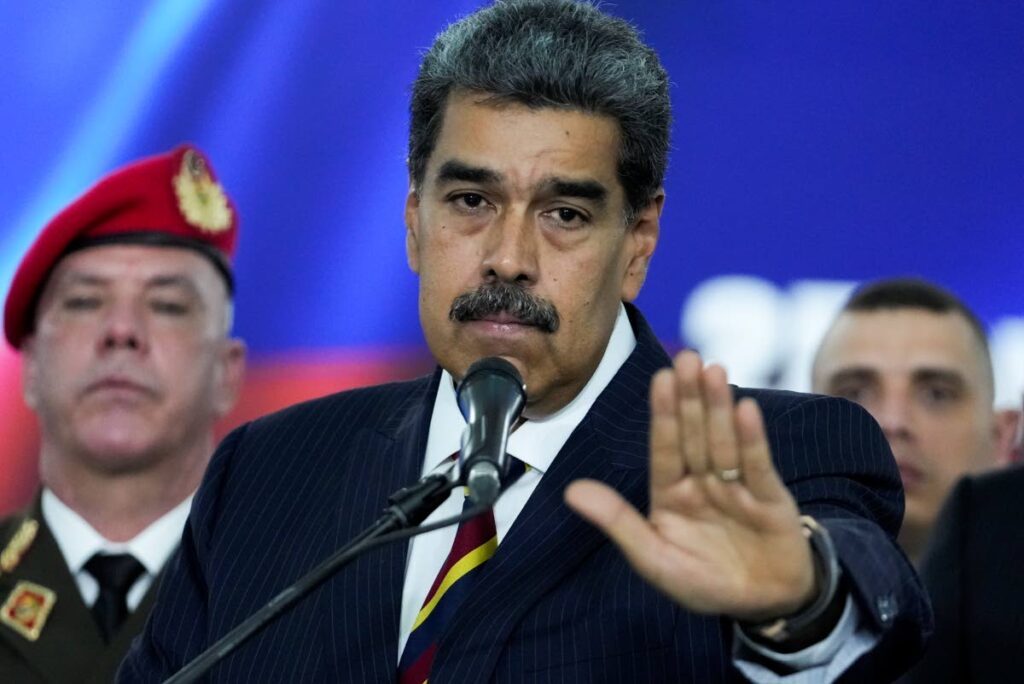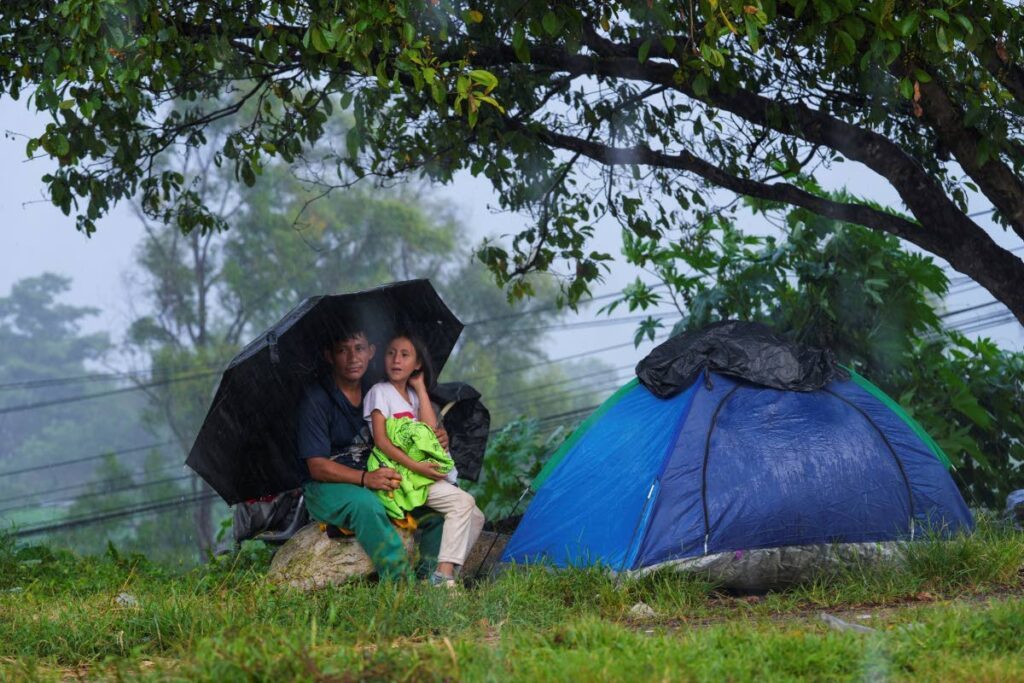Global experts: Trump more likely to secure deals than stir conflict in Latin America

SEVERAL global experts have suggested the Caribbean and Latin America region may be subject to a new style of "transactional" relationship with its powerful northern neighbour, as Donald Trump prepares to ascend to the US presidency after his November 5 win.
Much focus was on Venezuela.
At least two commentators have suggested this region may be subject to a new way of doing business with the 47th president, who as a businessman famously authored a book called The Art of the Deal.
The Latin American Advisor, published by think-tank The Dialogue, recently quoted several experts in an article, What will Trump's return mean for Latin America?
Former US ambassador to Panama John Feeley, said Trump is "permanently transactional and he usually telegraphs his punches."
Feeley expects Trump to bring "a new era of chaos and iconoclasm (breaking traditional beliefs)" in the conduct of government-to-government relations.
He expected regional and bilateral trade deals to come under an "America First" review.
"The region can expect unpredictable tariffs and cross-sectoral quid-pro-quo transactional proposals – blending migration, organised crime and trade concessions."
He believes migrants from Central America, Haiti and Venezuela will face massive deportations from the US.
"But in perhaps the cruellest twist, the biggest loser in the region will be the democratic Venezuelan opposition.
"Given Trump’s predilection for cutting deals with adversarial strongmen like North Korea's leader Kim Jong Un, it is highly likely that, despite (Venezuelan opposition leader) Edmundo González’s congratulatory tweet, Trump will not reimpose oil-sector sanctions on Maduro, but rather insist on some kind of performative exit controls from Venezuela, thus claiming he has solved the border crisis.”
Former Mexican deputy foreign minister Andrés Rozental viewed Trump as "bad news" for most of Latin America, especially Mexico.
"Although experience has shown that Trump often uses rhetoric and intimidations as a negotiating tactic, rather than as policies to be implemented, this time around, his resounding win and knowing some of the individuals he is likely to name to his cabinet, all portend a complicated and aggressive set of bilateral relationships between the US and Latin America."
He noted Trump's threat of tariffs on imports and deportations of illegal migrants.
"Drugs, undocumented immigration flows, trade disputes, border security and a general disdain for many of the region’s governments will probably result in unhealthy interactions with most of the current left-leaning leaders in Latin America."

US National Security Council former director for Latin America G Philip Hughes said Trump in his first term had backed Venezuelan opposition figure Juan Guaidó to try to de-legitimise and leverage Maduro out of power, but had seemed to lose interest when the effort proved difficult.
"He might again back efforts to leverage the Maduro regime out of power in Venezuela – a perceived competitor to Trump’s oil-production plans.
"And he is likely to court cordial relations with any like-minded and friendly Latin American leaders.
"Otherwise, major visionary, ambitious, beneficent or altruistic US initiatives toward the region will be in short supply.”
University of California, San Diego, researcher Cecilia Farfán-Méndez said the election result will greatly affect security in the Western Hemisphere.
"Contrary to (US) narratives of a border invasion, the issue at stake for Latin America and the Caribbean is the home-grown gun violence that has travelled beyond the US and has matured into an urgent regional crisis.
"Easy access to firearms has deeply transformed the leverage criminal groups have vis-a-vis the state."
She said Latin America and the Caribbean was the most violent region in the world, exceeding the world’s average of 5.8 homicides per 100,000 people, with a regional average of 15 murders per 100,000.
She said in the Caribbean, firearms are involved in almost 90 per cent of homicides, three times the world figure.
"With a Trump administration, it is unlikely we’ll see this issue getting the attention and co-operation it deserves. To be sure, countries in the region are not blameless, but violence would not be the same without army-grade illicit firearms easily available for criminal actors in the region.”
University of California, Irvine, lecturer Prof Louis DeSipio said Trump's campaign promise to deport illegal migrants could affect as many as 23 million people, mostly from Latin America and the Caribbean.
While possibly election hyperbole, if indeed carried out, such deportation could affect not only unauthorised immigrants, but also immigrants on temporary legal statuses, asylum-seekers and some legal permanent residents.
"The consequences of large-scale deportation, at whatever level, will not only be tragic for these migrants but also for their countries and communities of origin, that are ill-prepared to absorb return migrants."
DeSipio suggested Trump's tariffs might ironically help this region.
"New tariffs on China and other Asian countries could create incentives to shift manufacturing the Americas, areas that could maintain relatively lower tariffs under existing treaties.”
The Atlantic Council journal online, in an article, cited its research fellow Geoff Ramsey.
"Exactly how Trump will approach Venezuela remains to be seen. On the one hand, in his first administration, he led a maximum-pressure campaign on Maduro, which ramped up financial, oil, and individual sanctions against the government and key regime figures."
Yet Trump has not recently promised any return to this approach. His campaign remarks on Venezuela largely focused on refugees, saying the country's crime rate had plummeted because so many of its criminals had gone to the US.
"This, combined with the fact that former Trump officials have said that he became frustrated with the Venezuelan opposition and with the failure of the pressure campaign to achieve results, could point to a second Trump administration adopting a more transactional approach to Caracas.
"Ultimately, while it is likely that Trump will adopt more confrontational rhetoric on Venezuela, he may see more value in containing the outward flow of migration and securing the US and Western footprint in Venezuela’s oil sector than in reverting to a maximum-pressure approach."

Energy sector analyst Wood MacKenzie published an article by analyst Simon Flowers.
He opined a Trump presidency could reduce world oil prices and increase gas supplies from the US.
"Tariffs could slow US and global economic growth, reducing oil demand by as much as 0.5 million barrels per day in 2025 – one-third of Wood Mackenzie’s current projection for next year’s global oil demand growth.
"This has the potential to soften oil prices by US$5 to US$7 per barrel from current levels, assuming no other risks such as an escalation in Israel-Iran hostilities.
"Of all the energy and natural resources sectors, the US LNG (liquefied natural gas) industry will arguably benefit the most from the election outcome.
"A Trump victory provides more clarity on the industry’s direction, potentially paving the way for much-needed investments to help maintain more affordable global LNG prices post-2030. But the route ahead won’t be all smooth sailing."
Flowers said Trump has pledged to hike tariffs on imports to at least ten per cent globally plus 60 per cent for Chinese imports.
"We estimate raising tariffs could cost an additional US$450 billion in import duties in 2025, a burden that US businesses and households would carry.
"And this is before any global retaliation.
"While President-elect Trump is promising corporate tax cuts to compensate, gambling on aggressive protectionism is unlikely to pay off.
"We expect higher inflation, higher interest rates and higher debt."

Comments
"Global experts: Trump more likely to secure deals than stir conflict in Latin America"